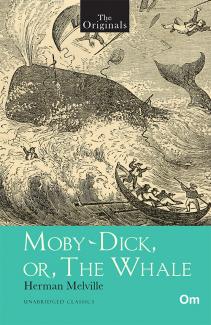THE ORIGINALS MOBY DICK OR THE WHALE (UNABRIDGED CLASSICS)
Born on 1 August 1819, Herman Melville, best known for his masterpiece, Moby-Dick, or, The Whale (1851), was an American novelist, poet and short story writer. Considered one of America's greatest writers, he barely won much acclaim during his lifetime. Melville's novels of the sea such as Typee (1846) and Omoo (1847) are inspired by his own marine adventures. His own struggles and conflicts during his lifetime are manifested beautifully in his artistic vision. In the latter part of his writing career, Melville's short stories became more dark and complex, and his prose reflected the materialism and moral degradation of American society in the 19th century. He died on 28 September 1891, aged 72. ... Read more Read less
As for me, I am tormented with an everlasting itch for things remote. I love to sail forbidden seas, and land on barbarous coasts. Originally published as Moby-Dick, or, the whale (1851), Herman Melville’s masterpiece, is one of the greatest American novels. The deceptively simple novel of the sea is filled with allegories and is open to interpretation, both religious and agnostic, amongst others. At the simplest level, The novel narrates Captain Ahab’s murderous obsession with the titular character, the whale, Moby-Dick after he loses his leg to it on a whaling mission. His quest for revenge drives him insane and deeply affects those around him. Beautifully written, Melville’s masterly narrative comes to the fore in his magnum opus, which was dedicated to American writer Nathaniel Hawthorne. ... Read more Read less











